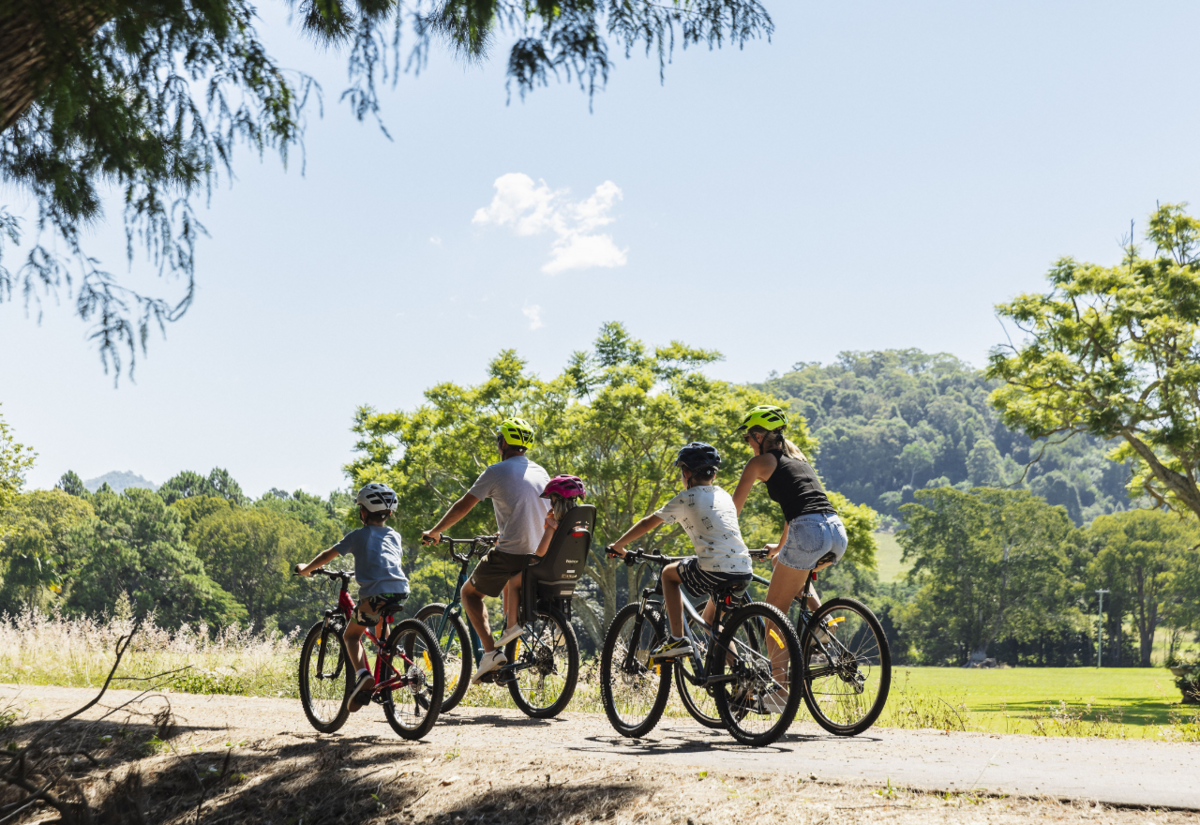Active families boost teens’ physical and mental health
18 April 2025, 8:04 PM
 A family on the Northern Rivers Rail Trail
A family on the Northern Rivers Rail TrailWith the Easter school holidays in full swing, parents all around Lismore and the Northern Rivers are riding bikes and playing backyard football. New research from the University of Adelaide says that parents who exercise together with their teenagers are more likely to have kids with better physical and mental health.
Conducted in collaboration with Children’s Hospital of Eastern Ontario Research Institute (CHEO RI) and a team of Canadian partners, a study showed that teenagers who exercise more frequently with their families were more likely to:
- meet physical activity guidelines of 60+ minutes per day (23%)
- meet recommended screentime guidelines of two hours or less per day (74%)
- report better mental health (81%) including higher life satisfaction (67%), and lower stress (86%), anxiety (73%) and depression (89%).
The study also showed that the more regularly the family exercises together, the better the outcomes.
Data from the World Health Organization shows that 80% of teenagers are not getting enough physical activity and that one in five teens play on digital screens for at least four hours when they engage in gaming. Additionally, one in seven teenagers experiences a mental disorder.
Dr Justin Lang, Adjunct Professor with UniSA and the Public Health Agency of Canada, says that simple, family-based interventions can make big differences to teenagers’ health and wellbeing.
“We know that regular exercise is great for both body and mind. But with more teenagers glued to screens and devices, it’s easy for sedentary habits to take hold,” Dr Lang says.
“Getting teenagers up and moving is crucial to reversing the slide into inactivity – and as our study shows, the key may be in getting the whole family involved.
“We found that teenagers who exercise daily with their families are twice as likely to meet activity and screen time guidelines – and four times more likely to report stronger mental health and greater life satisfaction.
“The message is simple: when parents get active with their teens and lead by example, everyone wins. Teens feel better, move more, and their mental health is stronger.”
The study examined the responses of 8213 Canadian teenagers aged 12-17 years, using self-reported data from the 2019 Canadian Health Survey on Children and Youth.
It found that only 11% of teenagers met national guidelines of 60 minutes of medium-to-vigorous physical activity per day; and just over half (56%) of teenagers engaged in less than two hours of recreational screen time per day.
Co-researcher, CHEO RI’s Dr. JP Chaput, says parents play a powerful role in influencing behaviours in their children.
“Exercising as a family does more than get hearts pumping – it may strengthen bonds, builds confidence, and can have a real impact on teenagers’ mental wellbeing,” Dr. Chaput says.
“When parents take an active role in their teens’ physical activity, it can build stronger emotional bonds, improves communication, and helps create a protective buffer against mental health challenges like stress, anxiety, and depression.
“So, when families prioritise being active together, they’re not only building healthy habits – they’re also investing in their teenagers’ long-term wellbeing.
“Ultimately, it’s a reminder that even small, shared moments of movement can make a big difference.”

